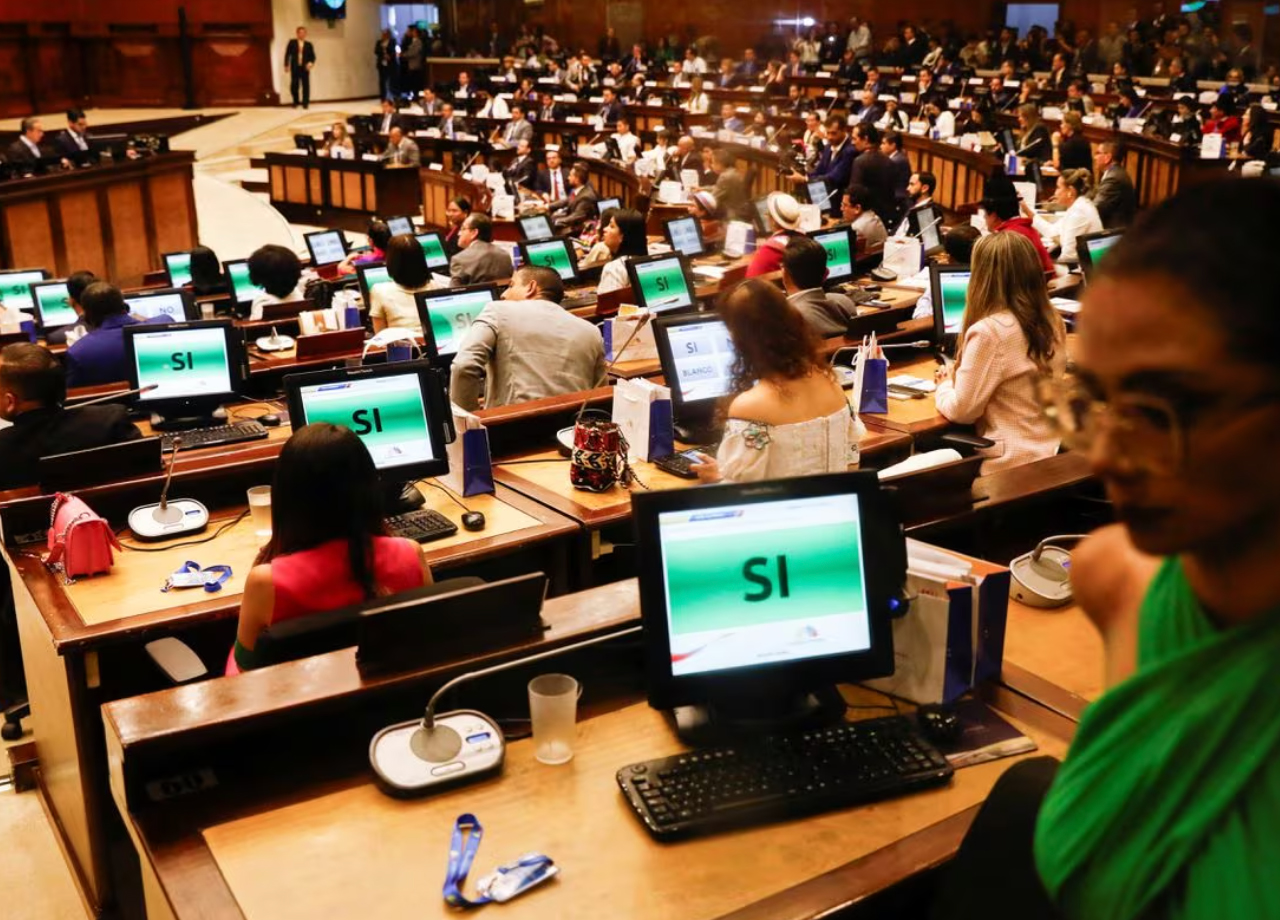With the help of Correístas, Noboa gets his Economic Law passed.
In a significant development for Ecuador’s economic landscape, President Daniel Noboa’s Economic Efficiency and Employment Generation Law, commonly referred to as the Noboa Economic Law, has been officially approved and published in the Official Registry. The law, comprising 55 articles with provisions covering a range of economic aspects, is being hailed as a triumph for the Noboa administration.
The National Assembly granted its approval to the law on December 19, 2023, with a favorable vote from 107 legislators, including the Citizen Revolution bloc, aligned with Correísmo. The urgency attached to the bill, designated for economic matters, mandated a 30-day window for assembly discussion and approval, emphasizing its significance.
Initially submitted by President Noboa on November 27, 2023, the bill underwent scrutiny by the Economic Development Commission of the Assembly. The commission introduced several modifications suggested by diverse legislative groups before the bill reached the plenary session for the decisive vote.
Notable changes to the legislation involve limitations on the forgiveness of tax debts, explicitly barring family members of the President and assembly members from this provision. The Internal Revenue Service (SRI) disclosed that the Noboa Banana Exporter stands out as the primary debtor to the State, with an outstanding sum of around $89 million.
A crucial addition proposed by the Citizen Revolution bloc involves the remission of interest and surcharges on educational loans, offering beneficiaries a grace period of twelve months for repayment. President Noboa’s administration anticipates generating around $832 million in revenue during 2024 through the implementation of the Economic Efficiency and Employment Generation Law.
Core of the law revolves around tax reforms
The legislation’s strength lies in tax reforms, with a focus on three key areas: taxation, employment generation through public-private partnerships, and free zones. Noteworthy tax exemptions are introduced, such as incentives for investments in renewable energy, tourism, and job creation for specific demographics.
In a comprehensive approach, the law addresses the reinstatement of Free Zones, defining them as designated geographical areas subject to special regulatory frameworks. The law introduces a Strategic Committee for the Promotion and Attraction of Investments to oversee declarations of Free Zones.
Another pivotal aspect of the law is the dedicated chapter on public-private alliances, emphasizing their role in carrying out essential projects. The creation of the Interinstitutional Committee of Public-Private Partnerships aims to formulate policies and regulations for these alliances, while the Secretariat of Public-Private Investments will coordinate project selection.
Critics wanted more
Public policy advisor Lorena Escobar acknowledges the law’s importance in addressing Ecuador’s deficit but asserts that broader discussions on tax reforms and urgent issues, such as fuel subsidies, are necessary.
While the law aims to attract investments and stimulate economic growth, concerns about political and legal instability, as well as energy security, remain. Escobar suggests that addressing these issues is vital for sustained investment and growth.
The Economic Efficiency and Employment Generation Law was introduced as a response to Ecuador’s economic challenges, including substantial arrears, a projected fiscal deficit, and a rising country risk. The government contends that the law’s objective is to strengthen the economy through tax incentives, both national and foreign investments, and job creation. The presentation of the bill underscores the need for Ecuador to enhance its competitiveness in the region and attract much-needed foreign direct investment.


0 Comments